What is an Artificial Intelligence Robot? Key Definitions and Concepts
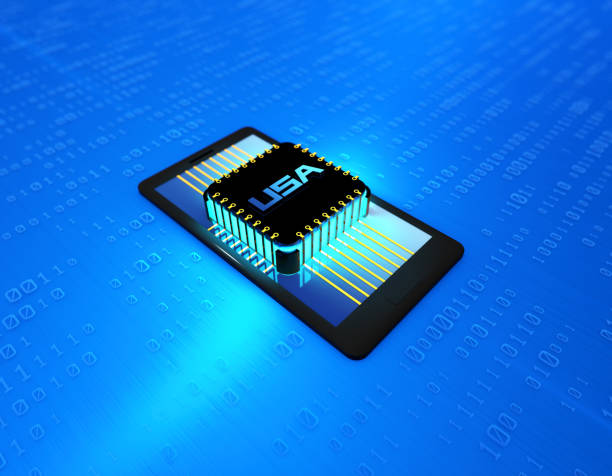
An Artificial Intelligence (AI) Robot, sometimes referred to as an intelligent agent, is a computer system or machine designed to perform tasks that typically require human intelligence.
These tasks can include learning, problem-solving, pattern recognition, natural language understanding, and decision-making.
#Artificial_Intelligence, the mastermind behind these robots, is a branch of computer science that aims to create machines that can think and learn.
These robots use various algorithms and models such as neural networks, machine learning, and Natural Language Processing (NLP) to analyze data, identify patterns, and make informed decisions.
While the general perception of an AI Robot is often limited to humanoid robots in movies and science fiction stories, the reality is much broader and more diverse.
AI robots can take the form of complex software, recommendation systems, chatbots, virtual assistants, and even self-driving systems.
In fact, artificial intelligence is increasingly penetrating our daily lives, from the suggestions we see on Netflix to the algorithms that provide Google search results.
One of the key aspects of an AI Robot is the ability to learn and improve continuously.
Through processes such as machine learning, these robots can improve their performance and increase their accuracy by analyzing new data.
This adaptability makes the AI Robot a powerful tool for solving complex problems and optimizing processes in various industries.
Are you disappointed with the low conversion rate of your online store?
Rasaweb with professional online store design is your definitive solution!
✅ Increase your sales and income
✅ Unique user experience for your customers
⚡ Get a free consultation now!
History and Evolution of Smart Robots
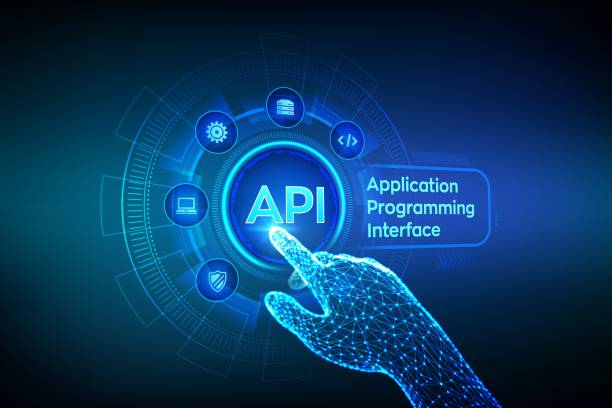
The history of AI Robots dates back decades, when scientists and researchers first began to imagine machines that could think and act like humans.
In the 1950s, with the advent of computer science and the development of the first artificial intelligence algorithms, this dream became closer to reality.
One of the important milestones in this field was the creation of a chess-playing program that was capable of defeating human players.
This success sparked a great deal of excitement and hope about the potential of artificial intelligence.
However, progress in the field of artificial intelligence in the following decades faced challenges and limitations.
The lack of sufficient data, the limitations of computer processing power, and the complexity of algorithms prevented the development of more advanced AI Robots.
For this reason, the 1970s and 1980s are known as the era of the “AI Winter,” when interest and investment in this field declined.
With the emergence of the internet and the dramatic increase in digital data in the 1990s, artificial intelligence flourished again.
Rapid advances in computer hardware and the development of new algorithms made it possible to create more complex and powerful AI Robots.
Today, we are witnessing widespread applications of artificial intelligence in various fields, including medicine, finance, transportation, and manufacturing.
The evolution of AI Robots continues, and researchers and engineers are constantly developing new algorithms, machine learning models, and hardware architectures.
With the ever-increasing advances in this field, it is expected that AI Robots will play a more important role in our lives in the future.
Types of AI Robots: Approaches and Architectures
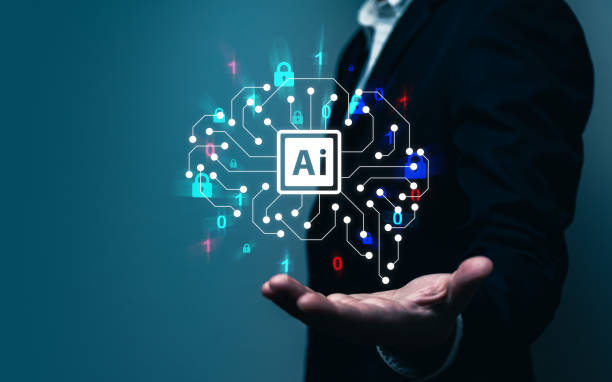
AI Robots are categorized based on different approaches and architectures.
One of the most common methods of classification is based on their capabilities and applications.
Based on this, artificial intelligence robots can be divided into three general categories:
- Narrow AI: This type of artificial intelligence is designed to perform a specific task and performs very well in that task.
Examples of narrow AI include facial recognition systems, movie and music recommendation systems, and customer service chatbots. - General AI: This type of artificial intelligence, sometimes referred to as strong artificial intelligence, has cognitive abilities similar to humans.
General AI can learn, reason, solve problems, and acquire knowledge in various fields.
Currently, General AI is still in the early stages of development, and there is no computer system that can fully exhibit this type of intelligence. - Super AI: This type of artificial intelligence surpasses human intelligence and is capable of performing any task that a human can perform, and even beyond.
Super AI is still a theoretical concept, and no computer system exists that can achieve this level of intelligence.
In addition to classification based on capabilities, AI Robots can also be categorized based on the architecture and approaches used.
Some of the most common approaches include:
- Machine Learning: This approach focuses on using algorithms to learn from data and improve performance without explicit programming.
- Neural Networks: This approach is inspired by the structure of the human brain and uses interconnected networks of nodes (neurons) to process information.
- Natural Language Processing: This approach enables machines to understand, interpret, and generate human language.
Applications of AI Robots in Various Industries
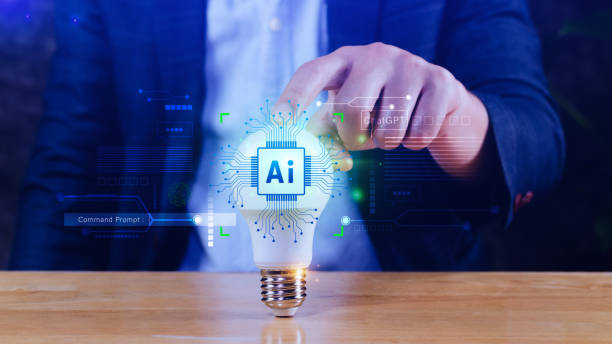
AI Robots are increasingly used in various industries and have a significant impact on how things are done.
Here are some common applications of artificial intelligence in various industries:
- Medicine: Artificial intelligence is used in diagnosing diseases, developing drugs, analyzing medical images, and providing personalized healthcare.
- Finance: Artificial intelligence is used in fraud detection, risk management, algorithmic trading, and providing personalized financial services.
- Transportation: Artificial intelligence is used in self-driving cars, route optimization, traffic management, and improving transportation safety.
- Manufacturing: Artificial intelligence is used in process automation, quality control, equipment failure prediction, and supply chain optimization.
- Retail: Artificial intelligence is used in product recommendation, customer service, inventory management, and demand forecasting.
- Education: Artificial intelligence is used in providing personalized education, assessing student performance, and automating administrative tasks.
These are just a few examples of the widespread applications of AI Robots in various industries.
With the ever-increasing advances in this field, it is expected that artificial intelligence will play a more important role in the economy and society in the future.
Here is a table to summarize some applications of AI Robots in various industries:
| Industry | Applications of Artificial Intelligence |
|---|---|
| Medicine | Disease diagnosis, drug development, analysis of medical images |
| Finance | Fraud detection, risk management, algorithmic trading |
| Transportation | Self-driving cars, route optimization, traffic management |
| Manufacturing | Process automation, quality control, equipment failure prediction |
Does your current website convert visitors into customers or drive them away? Solve this problem forever with a professional company website design by Rasaweb!
✅ Creating a powerful brand and credibility
✅ Attracting target customers and increasing sales
⚡ Get a free consultation now!
Advantages and Disadvantages of Using Smart Robots
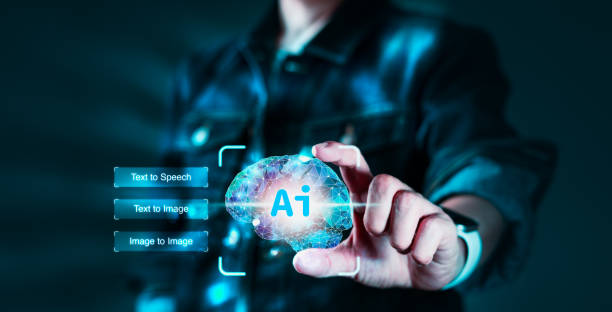
Using AI Robots has several advantages and disadvantages that should be considered before implementing them in any organization.
Here are some of the most important advantages and disadvantages:
Advantages:
- Increased efficiency and productivity: AI robots can perform tasks faster and more accurately than humans, leading to increased efficiency and productivity.
- Cost reduction: AI robots can reduce labor costs and also reduce the costs associated with human errors and mistakes.
- Improved decision-making: AI robots can analyze data and make more informed decisions based on it.
- Increased safety: AI robots can perform tasks that are dangerous for humans, leading to increased safety.
- Providing better services: AI robots can provide better customer service and answer customer questions quickly and accurately.
Disadvantages:
- High implementation cost: Implementing AI Robots can be expensive, especially for small and medium-sized organizations.
- Need for expertise: Implementing and maintaining AI Robots requires expertise, and organizations may need to hire new experts.
- Ethical issues: Using AI Robots can raise ethical issues, such as concerns about job losses and discrimination.
- Lack of transparency: Decisions made by AI Robots are not always explainable, and this can lead to distrust.
- Vulnerability to cyberattacks: AI Robots can be vulnerable to cyberattacks, and hackers can use them for malicious purposes.
By considering the advantages and disadvantages of using AI Robots, organizations can decide whether implementing this technology is appropriate for them or not.
Challenges and Obstacles Facing the Development of Smart Robots
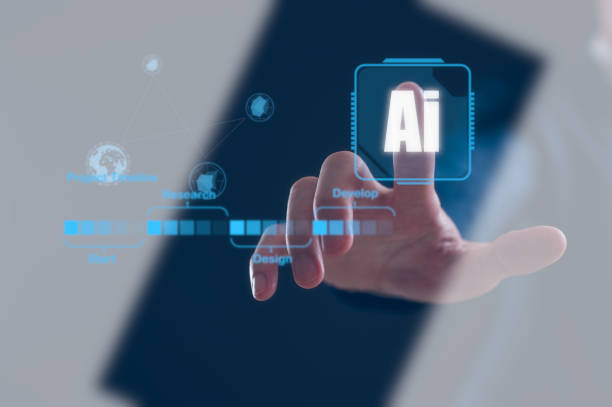
While AI Robots have a great deal of potential, their development and implementation face several challenges and obstacles.
Some of these challenges include:
- Data shortage: Machine learning algorithms require a lot of data to train and improve their performance.
A lack of sufficient and quality data can prevent the development of efficient AI Robots. - Bias issues: If the training data contains bias, the AI Robot may also be biased and make unfair or discriminatory decisions.
- Reliability issues: AI Robots must be reliable and safe, especially in sensitive applications such as medicine and transportation.
- Privacy issues: AI Robots are often used to collect and analyze personal data, which can raise privacy concerns.
- Shortage of specialized human resources: Developing and implementing AI Robots requires expertise, and a shortage of specialized human resources can hinder progress in this field.
- High cost of research and development: Research and development in the field of AI Robots can be costly, and this can hinder investment in this field.
To overcome these challenges, coordinated efforts from researchers, engineers, policymakers, and organizations are needed.
By addressing these challenges, the potential of AI Robots can be fully realized, and their benefits can be enjoyed in various industries.
The Future of AI Robots: Scenarios and Possibilities
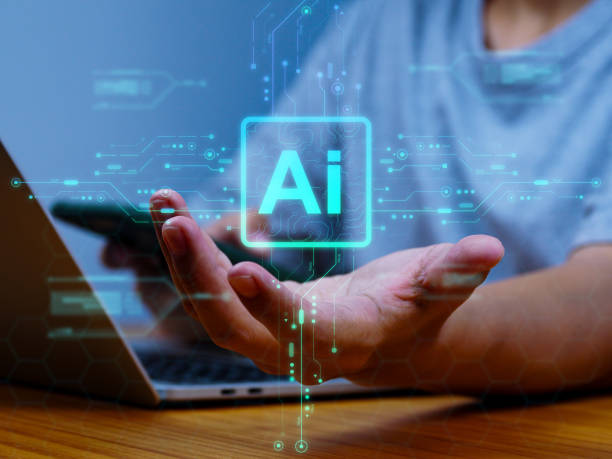
The future of AI Robots is full of possibilities and different scenarios.
Some experts believe that artificial intelligence will soon achieve General Artificial Intelligence (AGI), which is capable of performing any task that a human can perform.
Others believe that artificial intelligence will remain limited and will only be able to perform specific tasks.
In any case, it is expected that AI Robots will play a more important role in our lives in the future.
Here are some scenarios and possibilities regarding the future of AI Robots:
- More automation: AI Robots can automate many tasks, leading to increased productivity and reduced costs.
However, this automation can lead to job losses and create the need to retrain the workforce. - More personalization: AI Robots can provide personalized services and products, leading to greater customer satisfaction.
- Improved health and treatment: AI Robots can help in diagnosing diseases, developing drugs, and providing personalized healthcare.
- Increased safety: AI Robots can perform tasks that are dangerous for humans, leading to increased safety.
- New ethical issues: The development of AI Robots can raise new ethical issues, such as accountability, privacy, and discrimination.
To prepare for the future of AI Robots, attention should be paid to training the workforce, developing ethical standards, and creating appropriate legal frameworks.
Ethical Considerations Surrounding the Development and Use of AI Robots

The development and use of AI Robots bring with them a set of important ethical considerations that require careful examination and appropriate solutions.
One of the most important concerns is the issue of #accountability for the decisions and actions of AI Robots.
If an AI Robot makes a mistake or causes damage, who will be responsible? Should the developers, manufacturers, or users of the AI Robot be held accountable? These questions require clear legal and ethical answers.
Another concern is the issue of privacy.
AI Robots are often used to collect and analyze personal data, which can violate people’s privacy.
To protect privacy, strict laws and regulations must be put in place regarding the collection, use, and storage of personal data by AI Robots.
Also, the issue of bias and discrimination is of great importance.
If the training data for AI Robots contains bias, the AI Robot may also be biased and make unfair or discriminatory decisions.
To avoid this problem, the training data must be carefully examined and bias must be prevented.
Here is a table summarizing the key ethical considerations surrounding AI Robots:
| Ethical Consideration | Explanation |
|---|---|
| Accountability | Who is responsible for the decisions and actions of AI Robots? |
| Privacy | How to protect the personal data collected by AI Robots? |
| Bias and Discrimination | How to prevent unfair and discriminatory decisions by AI Robots? |
| Transparency | How to make the decisions made by AI Robots explainable? |
Is your online store ready to attract maximum customers and sell more? Rasaweb transforms your online business with modern and efficient online store design.
✅ Increased speed and improved SEO
✅ Excellent user experience on mobile and desktop⚡ Get a free online store design consultation from Rasaweb!
Skills Needed to Work in the Field of AI Robots
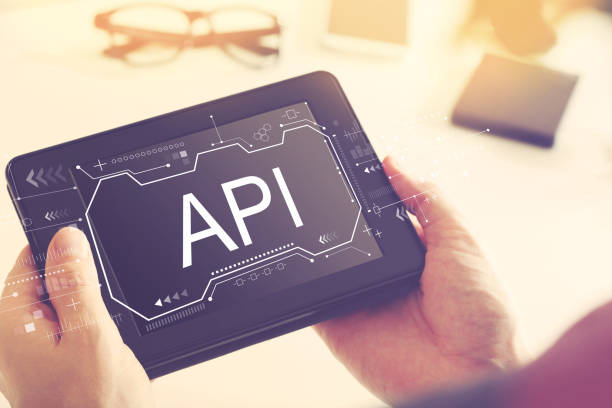
With the ever-increasing use of AI Robots, the need for skilled professionals in this field has also increased.
To work in the field of AI Robots, a set of technical and soft skills is required.
Here are some of the most important skills needed:
- Knowledge of Mathematics and Statistics: Machine learning algorithms are based on mathematical and statistical concepts.
To understand and implement these algorithms, strong knowledge in these areas is required. - Programming: To develop and implement AI Robots, strong programming skills are required.
Common programming languages in this field include Python, Java, C++ - Machine Learning: Knowledge and experience in the field of machine learning algorithms, neural networks, and natural language processing is essential.
- Data Analysis: The ability to collect, clean, analyze, and analyze data to train AI Robots is very important.
- Problem-Solving Skills: The ability to identify problems, find creative solutions, and implement them is an essential skill for working in this area.
- Communication Skills: The ability to communicate effectively with other team members, present results, and transfer knowledge is essential.
In addition to these skills, having a curious mind, an interest in continuous learning, and the ability to work in a team are also of great importance.
By acquiring these skills, you can succeed in the field of AI Robots and play an effective role in the development of this technology.
Resources for Learning and Training in AI Robots
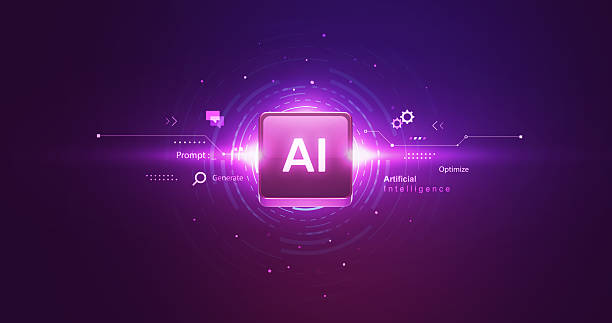
Learning in the field of AI Robots requires access to appropriate and efficient educational resources.
Fortunately, a variety of resources for learning artificial intelligence are available today, including online courses, books, scientific articles, and conferences.
Here are some of the best resources for learning AI Robots:
- Online Courses: Online educational platforms such as Coursera, edX, Udacity, and Khan Academy offer numerous courses in the field of artificial intelligence.
These courses are often taught by leading university professors and help you learn the basic and advanced concepts of artificial intelligence. - Books: Numerous books are available in the field of artificial intelligence that you can use to learn different concepts and techniques.
Some famous books in this field include “Artificial Intelligence A Modern Approach” by Stuart Russell and Peter Norvig and “Deep Learning” by Ian Goodfellow, Yoshua Bengio, and Aaron Courville. - Scientific Articles: Scientific articles are a valuable resource for learning about the latest advances in the field of artificial intelligence.
You can find scientific articles in scientific databases such as arXiv and IEEE Xplore. - Conferences: Participating in artificial intelligence conferences is a great opportunity to learn from experts, network with other interested people, and learn about the latest advances in this field.
Some of the reputable conferences in this field include NeurIPS, ICML, and ICLR.
In addition to these resources, you can also use practical projects to learn artificial intelligence.
By working on practical projects, you can put your knowledge to work and improve your practical skills.
Frequently Asked Questions
| Row | Question | Answer |
|---|---|---|
| 1 | What is an AI Robot? | An AI robot is a machine capable of understanding, reasoning, learning, and problem-solving, and can perform complex tasks with relative autonomy. |
| 2 | What are the most important applications of AI robots? | The main applications include industrial manufacturing, customer service (chatbots), medicine and surgery, self-driving transportation, space exploration, and military affairs. |
| 3 | What is the main difference between an AI robot and a regular robot? | A regular robot only follows programmed instructions, while an AI robot can learn from data, make decisions, and adapt to new environments. |
| 4 | How do AI robots learn? | They learn by identifying patterns and improving their performance through machine learning algorithms (such as deep learning, reinforcement learning) and processing vast amounts of data. |
| 5 | Can AI robots have emotions? | Currently, AI robots do not have real emotions in the human sense. They can mimic or recognize emotions, but they do not have an understanding and experience of them. |
| 6 | What are the current limitations of AI robots? | Limitations include the need for a lot of data, the inability to understand abstract concepts, the lack of real creativity, ethical issues, and the challenges of generalizability in new environments. |
| 7 | What is the role of artificial intelligence in the development of humanoid robots? | Artificial intelligence helps humanoid robots to walk, maintain their balance, understand the environment around them, interact with humans, and perform complex tasks. |
| 8 | How is the future of AI robots predicted? | AI robots are predicted to become smarter, more autonomous, and capable of performing more complex tasks in everyday life and industry, and their interaction with humans will increase. |
| 9 | Can AI robots replace all human jobs? | It is unlikely that all human jobs will be replaced. Robots will take over many repetitive and dangerous tasks, but jobs that require creativity, empathy, and ethical judgment will remain. |
| 10 | What ethical and social challenges are raised by the expansion of AI robots? | Challenges include issues related to privacy, data security, ethical decision-making by robots, the impact on employment, and accountability in case of errors. |
And other services of Rasa Web Advertising Agency in the field of advertising
Intelligent digital advertising: Transform sales increases with the help of user experience customization.
Intelligent marketing automation: Designed for businesses looking to manage campaigns through marketing automation.
Intelligent advertising campaign: A fast and efficient solution to improve SEO ranking with a focus on precise audience targeting.
Intelligent custom software: Transform user engagement with the help of precise audience targeting.
Intelligent direct marketing: Designed for businesses looking to increase sales through the use of real data.
And over a hundred other services in the field of internet advertising, advertising consulting and organizational solutions
Internet Advertising | Advertising Strategy | Advertorial Report
Resources
Introduction to the Basics of Artificial Intelligence
,Faradars Introductory Training in Artificial Intelligence
,What is Artificial Intelligence? Applications and Advantages
,Simple Artificial Intelligence Training Course for All A.Is | Sessions and Foundations of Intelligence
? Are you ready to take your business to the top in the digital world? Rasaweb Afarin Digital Marketing Agency, with its expert and creative team, is always by your side to pave your way to success with innovative strategies and comprehensive services. From SEO and optimization to professional online store design, we are here to turn your digital dreams into reality.
📍 Tehran, Mirdamad Street, next to the Central Bank, South Kazerun Alley, Ramin Alley, No. 6
“`



